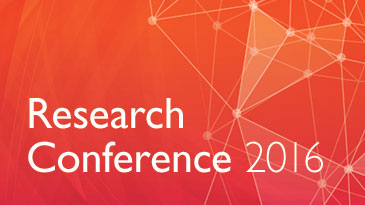
Location
Mezzanine M4
Start Date
9-8-2016 11:15 AM
End Date
9-8-2016 12:30 PM
Subjects
Science teaching, Moral values, Creativity, Professional development, Primary school teachers, Primary school science
Abstract
Over the last three years, the Scientist in Residence program (a collaboration between the Department of Education and Child Development, and Flinders University) investigated a model of professional learning in science education that capitalised upon teachers’ moral purpose and drove their creativity. Insight into how teachers transformed their science classrooms is provided through examples of activities, work samples and clips of teachers describing how they changed their practice and how that, in turn, changed the engagement and achievement of the children. These resources will serve to illustrate some of the principles of practice that the teachers drew upon. In particular, starting with the Science as a Human Endeavour strand of the curriculum and letting the Science Understandings serve this purpose. Data about the shift in teachers’ perceptions and practice speaks to the characteristics of the professional learning – making time and space for teachers to achieve a closer match between their classroom practice and their professional identity.
Recommended Citation
Westwell, M., & Cooke, S. (2016, August 09). Activating teachers’ creativity and moral purpose in science education [Paper presentation]. Research Conference 2016 - Improving STEM Learning : What will it take?. https://research.acer.edu.au/research_conference/RC2016/9august/7
Copyright Statement
Copyright Australian Council for Educational Research 2016
Place of Publication
Melbourne Vic
Publisher
Australian Council for Educational Research (ACER)
ISBN
9781742864075
Included in
Activating teachers’ creativity and moral purpose in science education
Mezzanine M4
Over the last three years, the Scientist in Residence program (a collaboration between the Department of Education and Child Development, and Flinders University) investigated a model of professional learning in science education that capitalised upon teachers’ moral purpose and drove their creativity. Insight into how teachers transformed their science classrooms is provided through examples of activities, work samples and clips of teachers describing how they changed their practice and how that, in turn, changed the engagement and achievement of the children. These resources will serve to illustrate some of the principles of practice that the teachers drew upon. In particular, starting with the Science as a Human Endeavour strand of the curriculum and letting the Science Understandings serve this purpose. Data about the shift in teachers’ perceptions and practice speaks to the characteristics of the professional learning – making time and space for teachers to achieve a closer match between their classroom practice and their professional identity.


Comments
Concurrent session Block 3